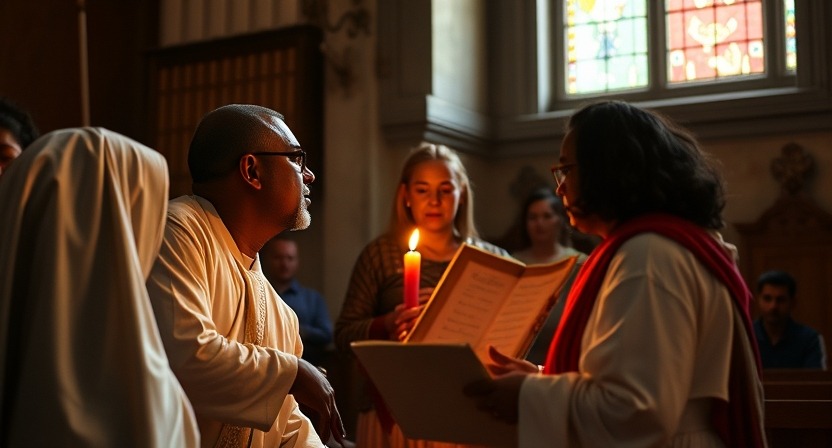Introduction: A Call for Justice and Peace
The concept of social justice is deeply embedded in religious teachings across the world. It calls for fairness, equality, and compassion in how people are treated and how societies are structured. In Australia, the Catholic Church has taken a strong stance on social justice issues, particularly through the Australian Catholic Bishops Conference (ACBC). Their latest statement, titled “Truth and Peace: A Gospel Word in a Violent World,” highlights the urgent need for truth and peace amid growing global conflicts and the spread of misinformation.
What Is Social Justice in Religious Discourse?
Religious discourse refers to the way religious leaders, texts, and communities address social issues. Social justice, in this context, calls for action against inequality, oppression, and injustice. For many faith-based communities, social justice is a moral obligation. It is not just about charity but about transforming unjust systems and structures.
The Role of Truth in Social Justice
The ACBC’s statement emphasizes the central role of truth in achieving social justice. In a world where misinformation spreads quickly, the truth becomes a vital tool for justice. Without it, public trust is eroded, and social divisions deepen. The statement highlights how falsehoods fuel violence and hatred, while truth brings peace and understanding.
The Catholic Bishops call on individuals, communities, and institutions to be truth-seekers. They stress that truth is not only a personal virtue but also a public necessity. For social justice to prevail, people must reject lies, challenge misinformation, and stand up for what is true, even when it is difficult or unpopular.
Why Misinformation Is a Threat to Peace
One of the strongest messages in the statement is the link between misinformation and violence. In recent years, false narratives have fueled division, unrest, and conflict in various parts of the world. Misinformation spreads rapidly through social media and other digital platforms, often going unchecked.
The Bishops argue that misinformation is not a harmless mistake—it is a social harm. When people believe falsehoods, they act on them, which can result in conflict, discrimination, and injustice. The statement urges governments, media platforms, and community leaders to actively counter false narratives.
The Role of Faith Communities in Promoting Truth and Peace
Faith communities have a significant role to play in promoting truth and peace. Churches, mosques, temples, and other places of worship are often trusted community hubs where people seek guidance and support. The Catholic Church’s emphasis on truth and peace calls on these institutions to become champions of factual information and peacebuilding.
Religious leaders can promote media literacy, helping communities identify credible information sources. They can also challenge narratives that promote division and hatred. By fostering open dialogue and encouraging critical thinking, religious communities can build bridges of understanding between people of different backgrounds.
Practical Steps to Promote Truth and Peace
- Challenge False Information: Speak out when false claims are made in your community or online.
- Educate Communities: Teach people how to identify credible information and question the sources they encounter.
- Promote Ethical Storytelling: Ensure that the stories shared in religious communities uplift truth, compassion, and unity.
- Encourage Media Responsibility: Call on media platforms to enforce stronger checks against the spread of misinformation.
The Role of Institutions and Governments
The statement also calls on institutions, including governments and media platforms, to take responsibility for upholding truth. Social media companies are urged to strengthen measures against misinformation, such as fact-checking and content moderation. Governments are encouraged to promote transparency and accountability in public life.
When leaders model truth-telling and honesty, it sets a positive example for society. Institutions that prioritize truth build stronger relationships with their communities, increasing public trust. This trust is essential for social justice to thrive.
Truth as a Path to Peace
Peace is more than the absence of conflict. It requires justice, fairness, and a commitment to truth. When misinformation dominates public discourse, peace becomes difficult to achieve. The ACBC’s statement calls for a renewed focus on the gospel message of truth as a foundation for peace.
Truth-telling is an act of courage. It often requires challenging authority, confronting popular opinion, and standing firm in the face of opposition. However, it is a necessary step toward peace. Truth allows for honest dialogue, reconciliation, and healing of past injustices.
How You Can Support Truth and Justice
Every individual has a role in promoting truth and justice. Here’s how you can contribute:
- Be a Critical Thinker: Question the information you consume and seek out credible sources.
- Stand Against Injustice: Speak up when you see injustice, whether in your community or online.
- Support Ethical Media: Follow and support media outlets that prioritize accuracy and fairness.
- Engage in Interfaith Dialogue: Building relationships with people of different faiths can promote understanding and reduce division.
Conclusion: The Call to Action
Social justice in religious discourse is not just a concept—it is a call to action. The Australian Catholic Bishops’ statement reminds us that truth and peace are interconnected. Without truth, peace cannot be sustained. As misinformation continues to spread, the call for truth becomes more urgent.
By promoting truth and challenging falsehoods, faith communities, governments, and individuals can build a more just and peaceful world. The ACBC’s statement is a timely reminder that justice requires action, courage, and a firm commitment to truth. Together, we can foster a society where fairness, dignity, and compassion guide us toward lasting peace.







